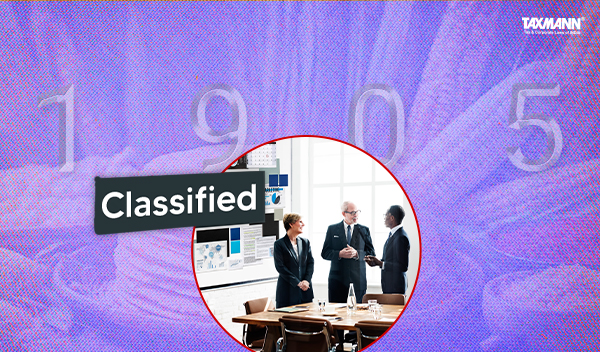Classic Malabar Parota and Whole Wheat Malabar Parota to Be Classified Under HSN 1905 & Taxable at 5% | Kerala HC
- Blog|News|GST & Customs|
- 2 Min Read
- By Taxmann
- |
- Last Updated on 20 April, 2024

Case Details: Modern Food Enterprises (P.) Ltd. v. Union of India - [2024] 161 taxmann.com 538 (Kerala)
Judiciary and Counsel Details
-
- Dinesh Kumar Singh, J.
- M. Gopikrishnan Nambiar, K. John Mathai, Joson Manavalan, Kuryan Thomas, Paulose C. Abraham, Raja Kannan, R. Chethan Krishna, & S. Parvathi, Advs. for the Petitioner.
- P.G. Jayashankar, & Muhammed Rafiq, SPL., GP (TAXES), for the Respondent.
Facts of the Case
The petitioner was engaged in manufacture and supply of foods products and filed an application for advance ruling to determine the classification and rate of tax on its products. It was contended that its products would qualify as ‘bread’ and should be taxable at 5% under GST. However, the AAR held that the products would be taxable at 18% and it filed appeal before the Appellate Authority for Advance Ruling (AAAR). The AAAR also held that the products would be taxable at 18%. It filed writ petition against the order.
High Court Held
The Honorable High Court noted that the products are made from the fine flour (Maida) or whole wheat flour (Atta) and thin round sheets of dough are semi-cooked on hot place (Tawa/Skillet) using oil. These are packed and can be consumed after heating them.
The Court also noted that these products are akin/similar to products mentioned in HSN code 1905 of Chapter 19 with heading Preparations of cereals, flour, starch or milk; pastrycooks’ products as ingredients used and process applied in their preparations are somewhat similar to products mentioned in Chapter heading HSN Code 1905. Therefore, it was held that the said products manufactured and supplied by petitioner would be liable to be taxed at 5% as per SI. No. 99A of Notification No. 1/2017-Central Tax (Rate).
Disclaimer: The content/information published on the website is only for general information of the user and shall not be construed as legal advice. While the Taxmann has exercised reasonable efforts to ensure the veracity of information/content published, Taxmann shall be under no liability in any manner whatsoever for incorrect information, if any.

Taxmann Publications has a dedicated in-house Research & Editorial Team. This team consists of a team of Chartered Accountants, Company Secretaries, and Lawyers. This team works under the guidance and supervision of editor-in-chief Mr Rakesh Bhargava.
The Research and Editorial Team is responsible for developing reliable and accurate content for the readers. The team follows the six-sigma approach to achieve the benchmark of zero error in its publications and research platforms. The team ensures that the following publication guidelines are thoroughly followed while developing the content:
- The statutory material is obtained only from the authorized and reliable sources
- All the latest developments in the judicial and legislative fields are covered
- Prepare the analytical write-ups on current, controversial, and important issues to help the readers to understand the concept and its implications
- Every content published by Taxmann is complete, accurate and lucid
- All evidence-based statements are supported with proper reference to Section, Circular No., Notification No. or citations
- The golden rules of grammar, style and consistency are thoroughly followed
- Font and size that’s easy to read and remain consistent across all imprint and digital publications are applied



 CA | CS | CMA
CA | CS | CMA
